Penned from the mezzanine floor of his home in this buzzing neighbourhood, a 26-year-old artiste’s book is a gripping chronicle that navigates Mumbai’s hip-hop scene
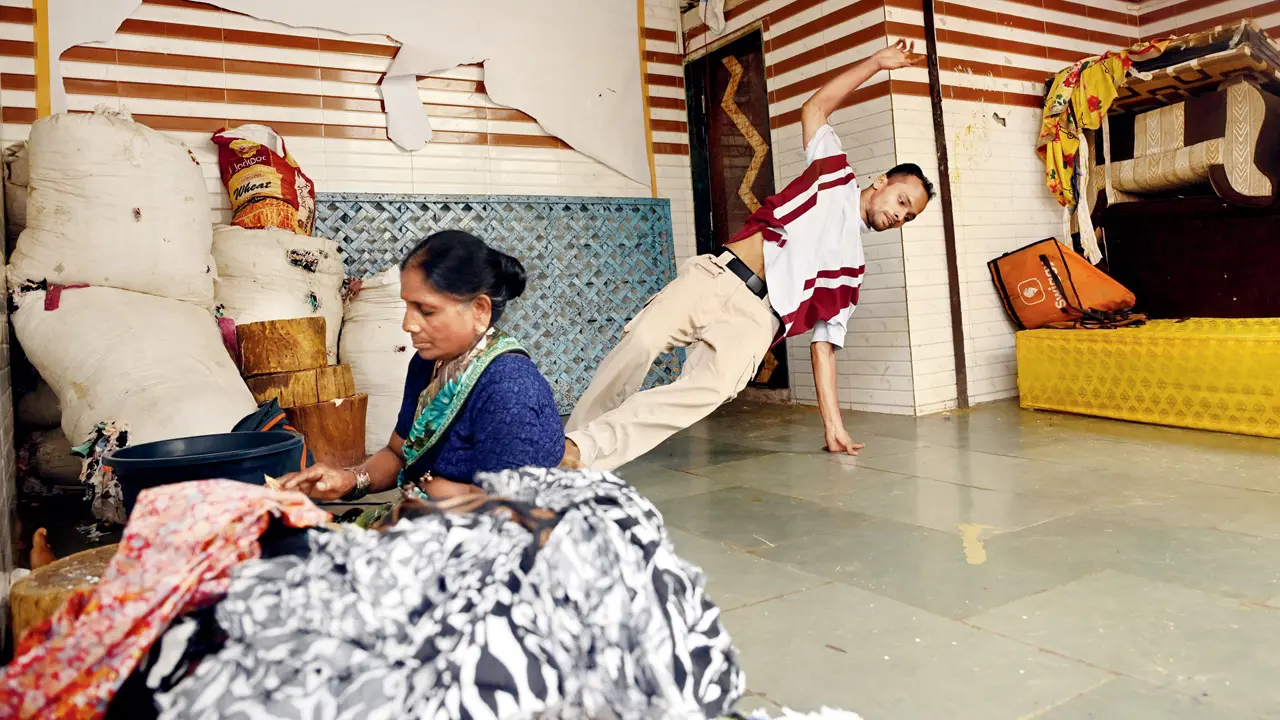
Sairaj Methari (right) practises at a shared community space in Satkarya Chawl in Dharavi. Pics/Satej Shinde
In a tiny pocket of Dharavi, we’re standing with our arms folded, closely observing rapper and b-boy Sairaj Methari spin through a freestyle dance routine. It’s the same community space where the 26-year-old, who recently self-published a book on hip-hop, would rehearse as a teenager. A few passers-by join us in the audience, older women chuckle as they walk by; it’s a usual sight for them. It’s hard to imagine that a few blocks away from here, the chawl recently witnessed a brutal stabbing that no one likes to talk about.
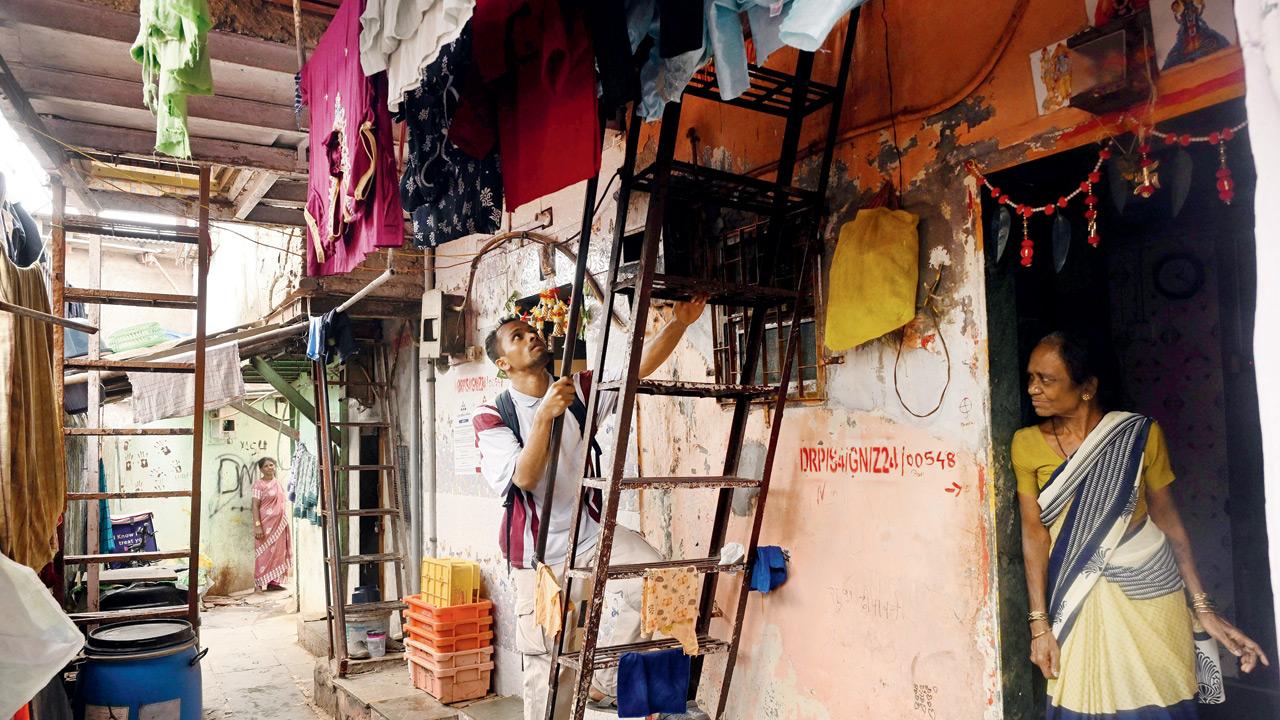
Methari climbs up a ladder to his room in Mukund Nagar, Dharavi
“Around here, people don’t need a reason to get violent. Growing up, I saw hip-hop crews pick up fights over petty arguments; bloodshed wasn’t rare,” Methari admits. He doesn’t come across as someone who’d throw a punch at you, honestly. “I’d be standing at the back. I knew that if I ever broke a bone in a fight, that would be the end of my b-boying dream,” he smiles.
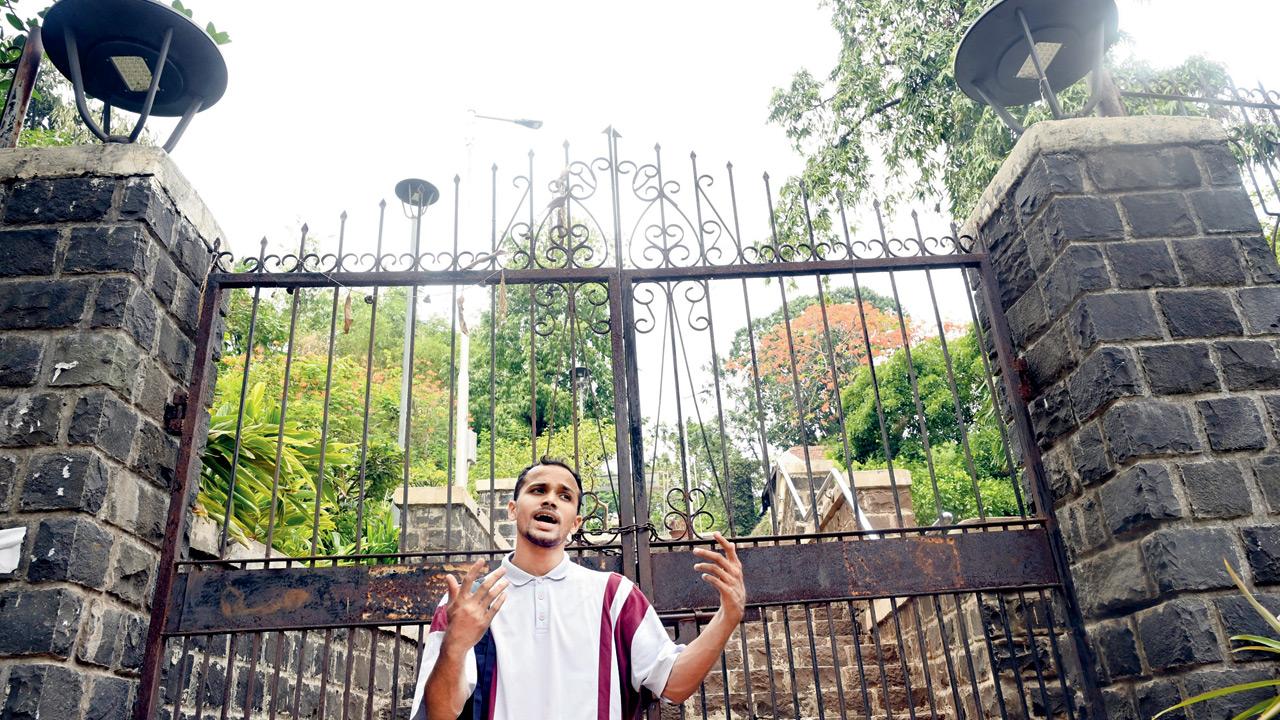
The rapper raps outside Sion Fort, an erstwhile hotspot for hip-hop
Methari’s new book, Exploring A Wider and Deeper Perspective of Hip Hop, quashes the popular notion that hip-hop is rooted in violence, materialism and one-upmanship. “I was in Banská Bystrica, Slovakia for an artiste’s residence in August 2024. It opened my eyes to the real purpose of hip-hop — to uplift the youth,” he reveals. Inspired by the book The Gospel of Hip Hop by American rap pioneer KRS One (whom you might recognise from the widely popular tune, Sound of Da Police), Methari sat down to pen his own book in November 2024.
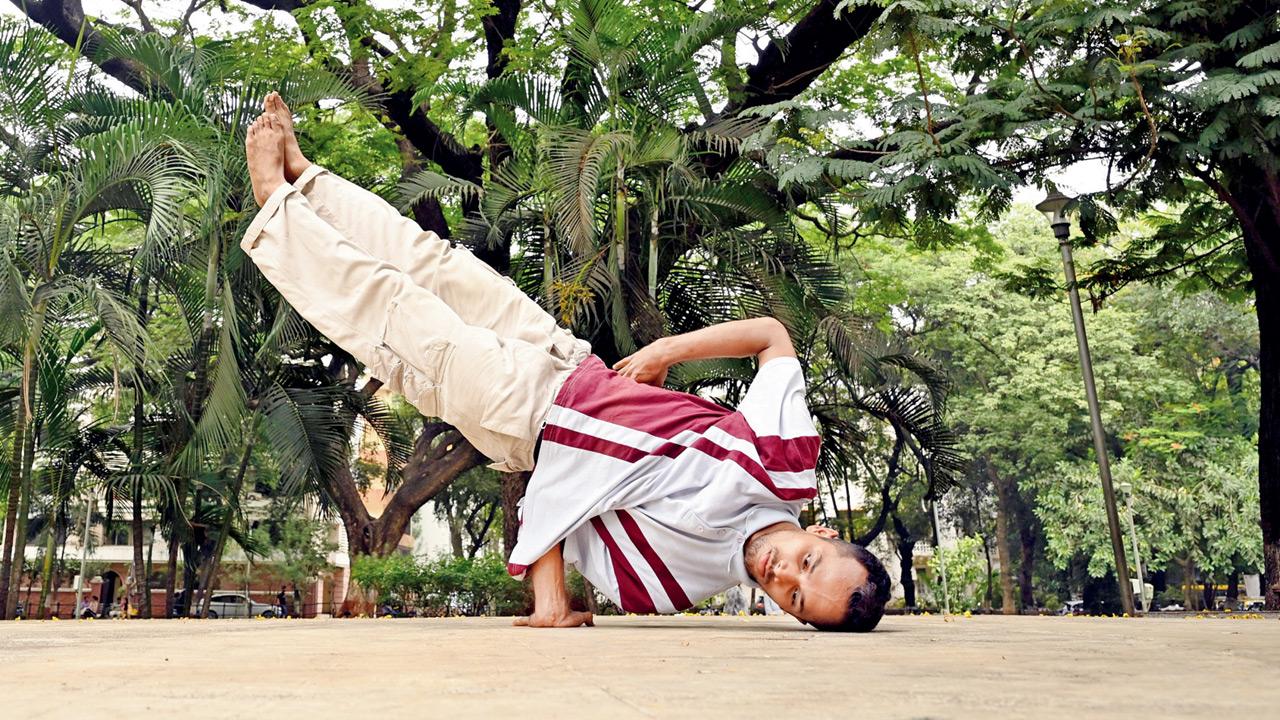
The b-boy in action at Five Gardens in Dadar East
One of the firsts of its kind, the book is far from a one-man job. It takes a city to raise a rapper, Methari insists. We accompany the artiste to one such spot, Five Gardens in Dadar East. Dubbed ‘Dancer log ka katta’ by locals, a water tank in the garden has doubled as a stage for rappers and b-boys for decades. The flat surface is an ideal training ground, Methari says; the smitten lovers who throng the venue every evening, not so much. “The cops would come for the couples and we’d end up catching collateral damage,” he chuckles.
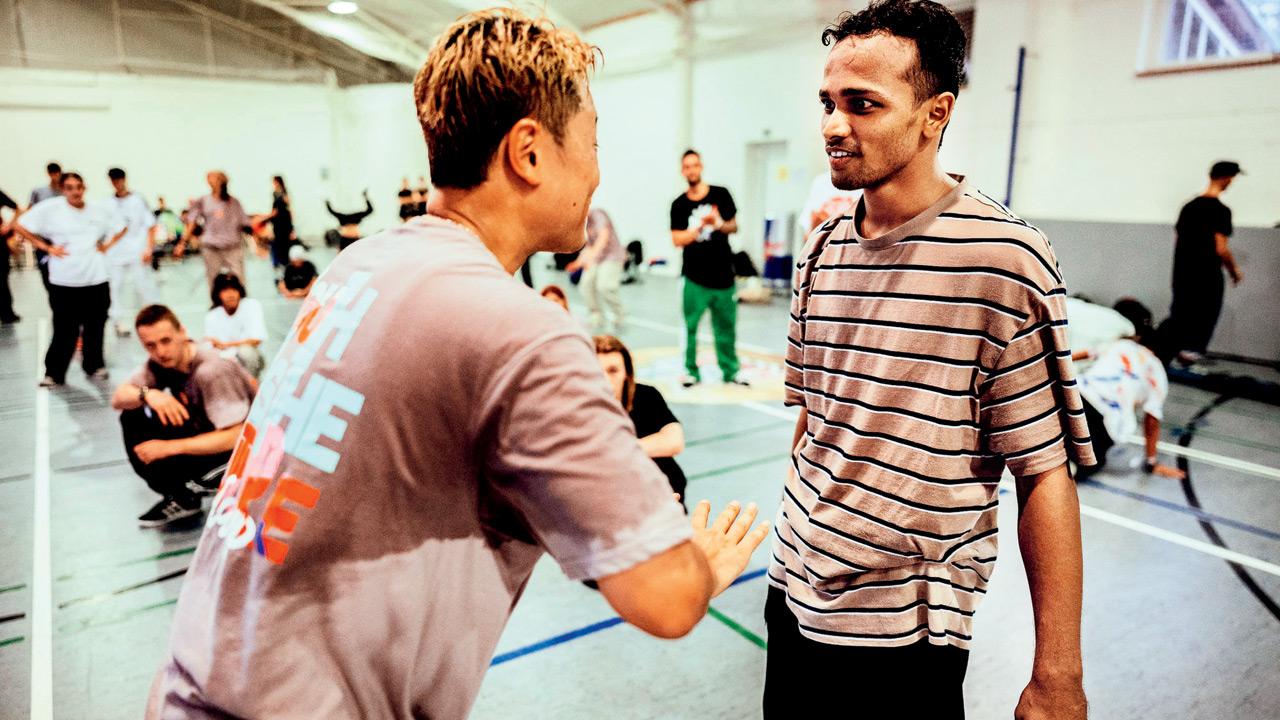
Methari interacts with international artistes in Slovakia
Before we get caught in the crossfire, we move to another hotspot right out of our history textbooks. The Sion Fort built in the 17th Century was a thriving hub for rap battles and b-boy dance-offs in the early 2010s, we learn. “You could walk up to the fort at any time of the day, and you’d find a session to join,” he reveals. With increased surveillance and security measures, these memories have now been relegated back to the history books.
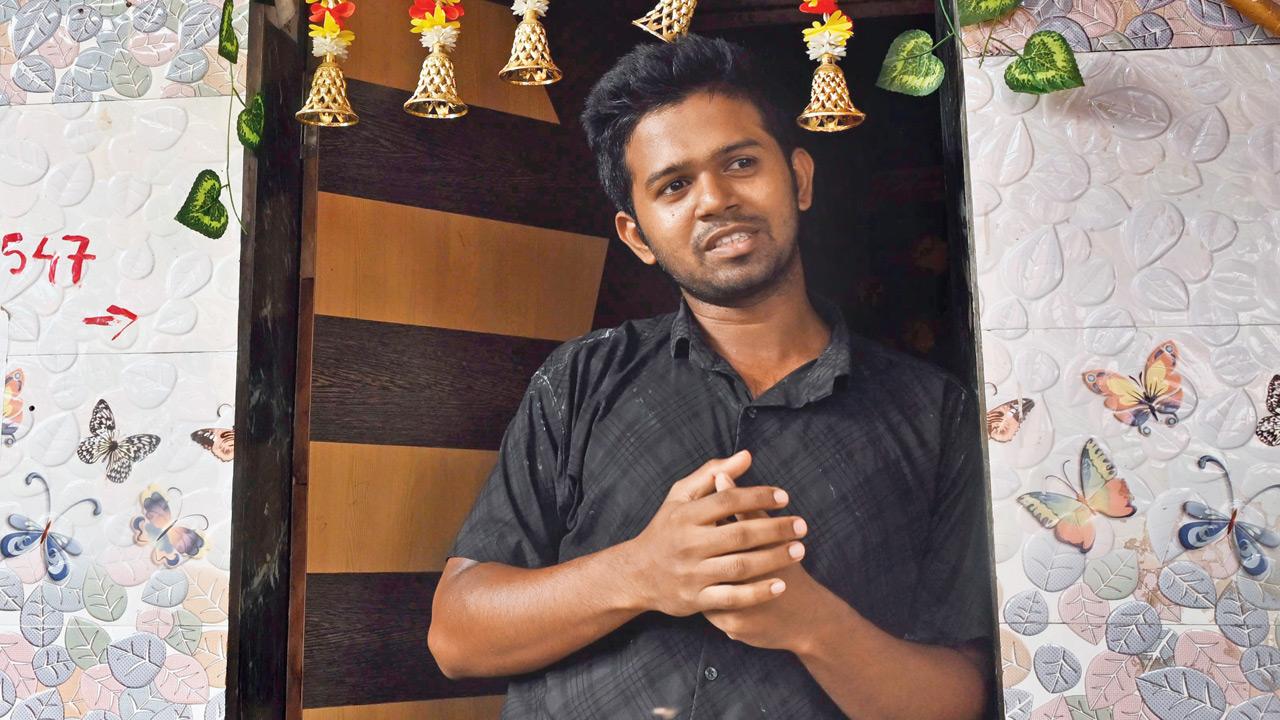
Selva Kumar
It takes us a few wrong rights and correct lefts on a rainy day in the city before we’re at our final stop, the room where the 363-pager was penned. We’re in Methari’s home, the compact attic above it, to be precise. “I locked myself in for four months and poured my heart out,” he reveals. Some writers we know might come down with a serious case of writer’s block left in such a situation. “It didn’t bother me. My father is an electrician, and he often works long hours outdoors. It gave me just enough time to write in peace,” he reveals.
With no formal training in writing, he admits the book might not be the most well-structured one you’ll read. He credits his working proficiency in English to his time at the Bombay to Barcelona Library Cafe in Marol, where he served as a barista in 2016. We learn that the young artiste had help from writers and community leaders Mayuree Pandit and Hormazd Mehta in proofreading the manuscript. Through a self-publishing platform, Methari now has enough copies of his book for everyone. Selva Kumar, Methari’s enthusiastic young neighbour, has already secured one. “I’m inspired. It’s great to see one of us on the book cover,” says Kumar. A milk delivery agent by day, Selva dons his street photographer’s hat by night.
Methari knows it’s too soon to let these compliments go to his head. “Performance arts helped my generation reject a life of violence. But the problem persists. For the children today, it is substance abuse that is the major concern. It’s a slippery slope from there,” he warns us. Asha, a long-time resident who’s been keenly listening to our conversation all this while, interjects with some reassurance, “We’re happy that the children keep busy with the dancing and singing. They come back with broken bones every now and then, but at least they’re not in bad company.” We can rest assured that we’ll see them in Dharavi’s good books soon.
Available: amazon.in
 Subscribe today by clicking the link and stay updated with the latest news!" Click here!
Subscribe today by clicking the link and stay updated with the latest news!" Click here!








